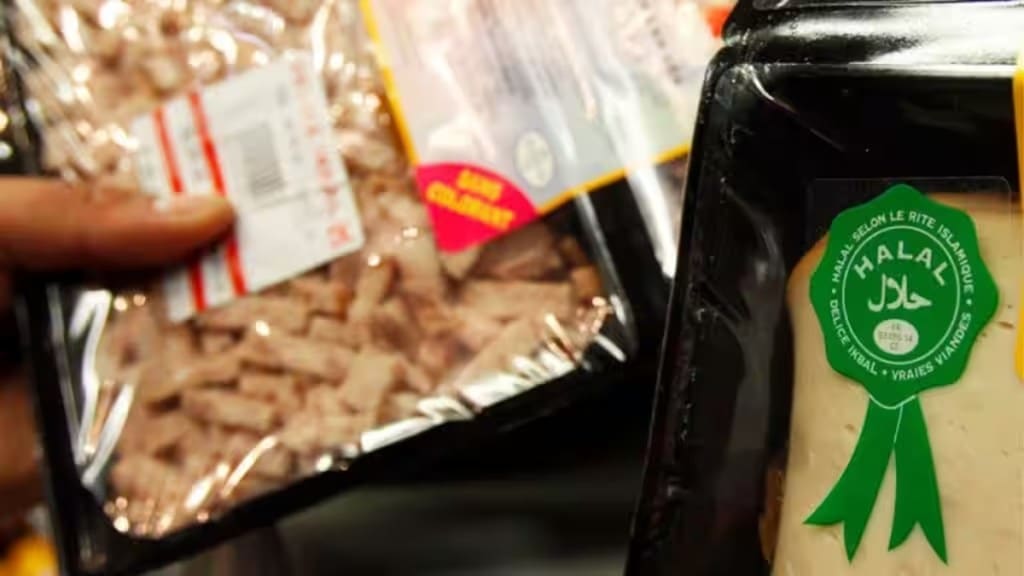The Uttar Pradesh government on Saturday banned the production, storage, distribution and sale of halal-certified products across the state with immediate effect.
This happened after an FIR was lodged at Lucknow’s Hazratganj police station on Friday (November 17) in which the complainant alleged that “some companies have started certifying products as halal in order to increase their sale among a community,” and thus were “toying with the public’s faith”.
With this action, the halal certification controversy has reared its head again, with the UP government cracking its whip against companies that provide this certification.
Also Read: UP bans production and sale of halal-certified products, export items exempted
What are halal-certified products?
Halal-certified products are those that have met the requirements of Islamic law and are suitable for the consumption of Muslims. Halal is an Arabic word that means permissible — as opposed to ‘haram’ or ‘forbidden’.
Certain food items such as pig meat and pig fat are banned under Islamic law. Halal and Haram also refer to the way an animal is slaughtered.
For halal meat, an animal has to be slaughtered through the throat, oesophagus, and jugular veins but not the spinal cord — as opposed to the jhatka method of slaughtering an animal where the neck gets the blow.
In India, various halal-certifying agencies provide companies, products or food establishments halal certification. And, the National Accreditation Board for Certification Bodies (NABCB) provides accreditation to these “Halal Certification Bodies” under Quality Council of India.
Taking certification from government-recognised Halal certifying bodies gives companies an advantage in not only national but international market.
Why UP government banned halal-certified products?
The UP government said halal certificates for vegetarian products like oil, soap, toothpaste, and honey, where no such certification is necessary, suggest a deliberate criminal conspiracy targeting a specific community and its products. The ban is in the interest of public health and to prevent confusion. The ban exempts products meant for export.
“Halal certification of food products is a parallel system which creates confusion regarding the quality of food items and is completely against the basic intention of the said Act and is not tenable under Section 89 of the said Act,” the UP government order said.
The action came as the government said it recently received information that indicated that products such as dairy items, sugar, bakery products, peppermint oil, salty ready-to-eat beverages, and edible oils are being labelled with halal certification.
“Unrestrained propaganda is being disseminated within a particular section of society to discourage the use of products lacking a halal certificate,” the statement said. This harms the business interests of other communities, it added.
The UP government’s order came a day after police in Lucknow booked a company and three organisations for providing “illegal halal certificates” to retail products sold in the state.
Police had filed a case on the sale of products with “illegal halal certificates” after a BJP youth wing member filed a complaint claiming that “some companies have started certifying products as halal in order to increase their sale among a community” and that the practice is like “toying with the public’s faith”.
What is the controversy?
The controversy is centered around two aspects — one is the legality of the certificate-issuing authority and the other is the allegation of targetting people of a particular community.
On Friday, November 17, a case was registered in Lucknow against some entities for allegedly exploiting religious sentiments to boost sales by providing halal certificates to customers of a specific religion.
According to the Uttar Pradesh government, these entities include Halal India Private Limited Chennai, Jamiat Ulama-i-Hind Halal Trust Delhi, Halal Council of India Mumbai and Jamiat Ulama Maharashtra among others.
Meanwhile, on one hand, several Muslim groups have been strongly endorsing that people from the community should only consume halal-certified products – even with medicines.
On the other hand, several Hindu groups have been strongly boycotting halal-certified products. While a certain section of them has been asking Hindus to not consume halal-certified products, another section has been asking to do away with the certification process.

